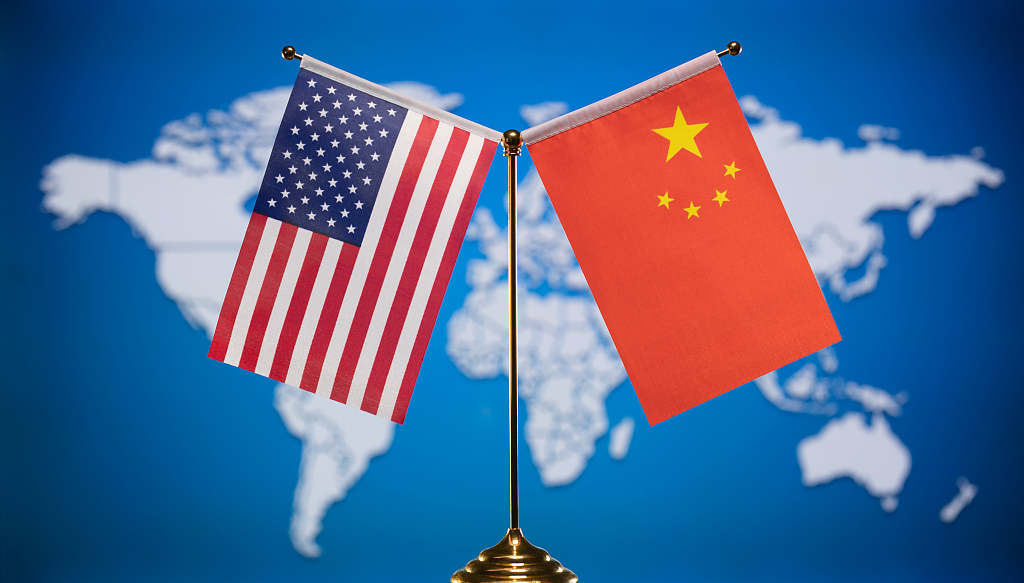US Chinese walk an old, familiar path
Despite integration, they have to cope with 'modern exclusion', scholar says
By Rena Li in Los Angeles | China Daily | Updated: 2024-05-20 10:05

The United States has been celebrating Asian and Pacific American Heritage Month in May, which has prompted reflection on the challenges Chinese Americans face despite their integration into US society, says Zhou Min, a professor of sociology and Asian American studies at the University of California, Los Angeles.
"Although Chinese Americans are integrating well, they are still affected by dual stereotyping," Zhou said.
In 1882 the US Congress passed the Chinese Exclusion Act, which was signed by president Chester Arthur, introducing a 10-year ban on Chinese laborers immigrating to the US. The act was the first significant law restricting immigration into the country.
"As we celebrate Asian Heritage Month it's imperative to acknowledge and address the persistent barriers to equality and inclusion faced by Chinese Americans and other Asian communities," Zhou said.
Intertwined with historical discrimination and perpetuated through stereotyping, racial profiling and hate crimes, "modern exclusion" persists, she said.
"On the one hand, they are lauded as the model minority for their extraordinary achievements. On the other hand, they are considered forever foreigners because of their look.
"And old negative stereotypes, such as the yellow peril, the threat, are often invoked when the US and China are at odds with each other."
For example, in recent years the China Initiative, which focused on alleged Chinese economic espionage, has negatively affected many China-born scientists working in US research universities, she said.
The most prominent case was that of Massachusetts Institute of Technology professor Gang Chen, a mechanical engineer and nanotechnologist arrested in 2021 and charged with concealing his affiliations with Chinese government institutions, wire fraud, making a false statement on a tax return and failing to disclose a foreign bank account.
Even though he was ultimately exonerated, the shadow of suspicion lingers, perpetuating narratives of disloyalty and espionage.
"Although all the charges against him were dismissed, damage has already been done and is hard to be undone," Zhou said. "Chen's case suggests that Chinese Americans are still suspects of being disloyal Americans, having connections to and spying for China, when China is perceived as America's enemy."
Broader challenges
Zhou, who last year was elected to the US National Academy of Sciences just as Chen was the same year, identifies deeply with the broader challenges facing Chinese Americans, as they may still be viewed with suspicion and mistrust, particularly when geopolitical tensions are high.
"Such perceptions not only harm individuals' reputations but also undermine efforts toward genuine inclusion and recognition of their contributions to American society," Zhou said.
The China-US relationship and the experiences of Chinese Americans are deeply intertwined and complex, she said, and geopolitical tensions between the two countries can have significant direct and indirect effects on the lives of Chinese Americans.
"US-China relations are good, we are good. (If) these relations are bad we will be negatively affected."
Worsening US-China relations would hurt the US, and it would lose out in the global competition for foreign talent from China and elsewhere, she said. Poor relations would also reinforce negative societal stereotypes against Chinese Americans and create new barriers for immigrant integration even among the better off, such as in the case of Chen.
"For us, China is our ancestral homeland, and the US is our new homeland. It's our obligation as Chinese Americans to facilitate communication, understanding and cooperation between our adopted homeland and ancestral homeland."
Chinese Americans have made great contributions to the economic and social development of the US, particularly in science, engineering and medicine, the effect being significant and multifaceted.
The demographics of Chinese Americans have undergone major changes over the past few decades, reflecting a shift toward greater cultural diversity. Chinese Americans today come from a broader range of regions within China compared with what they used to.
Another shift — a wave of highly skilled professionals and investors compared with low-skilled laborers — is diversifying occupations and income levels, creating a more complex Chinese American community.
"These changes were driven by international migration, which was affected by the normalization of US-China relations, China's (reform and opening-up), and US immigration policy," Zhou said.
























